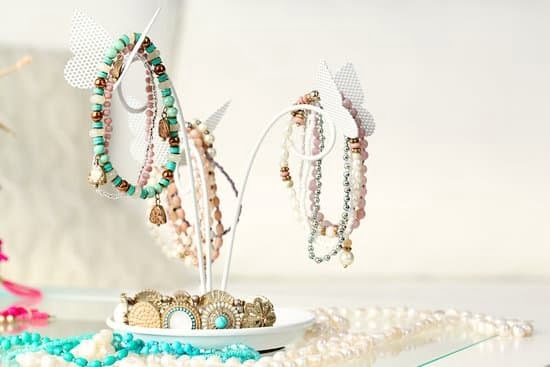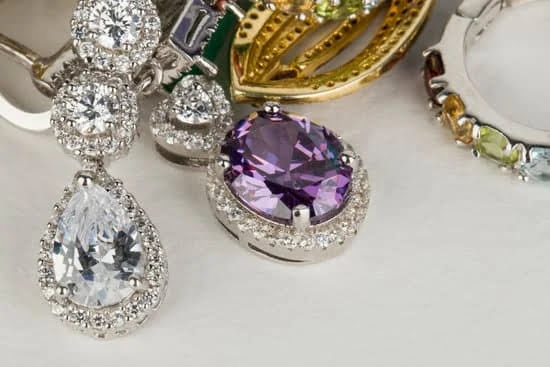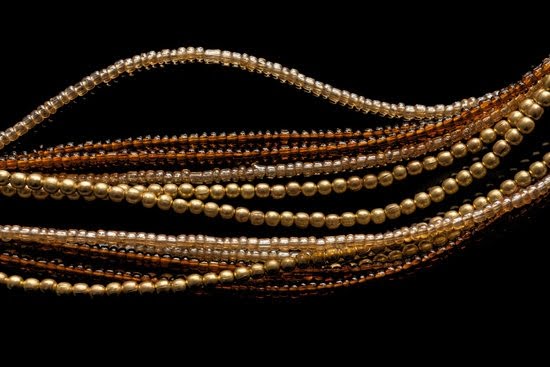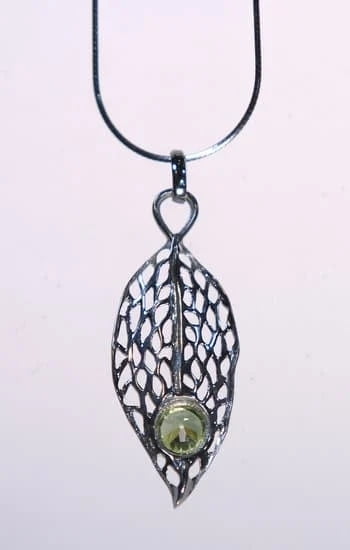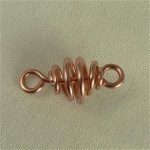Introduction to Crimping Pliers
Crimping pliers are an essential tool for jewelry making. These tools are incredibly helpful for creating a complete and secure hold in your jewelry pieces and add an elegant, professional finish. Crimping pliers have been used for decades to create shrink-wrapped designs, securely attaching the clasps onto the components of your jewelry pieces.
There are several types of crimping pliers available, each designed to handle different jewelry-making tasks. The most basic type is needle nose or flat nose pliers, which can be used when making necklaces, bracelets, earrings as well as other pieces of jewelry requiring connections between two ends. This type is usually made up of two segments that crimp the wire and hold beads into place without damage.
A more advanced type of crimping plier is called a side cutter which is used specifically when securing findings such as clasps to strands or cables in multi-strand necklaces or bracelets. It has long thin blades at one end and short blades at the opposite end which help you achieve a tighter hold with precision.
Finally, looping pliers are great if you want to make precision loops on wires that don’t already have loops pre-formed on them like jump rings would have. Diagonal cutters have shorter blades located at one end which allow you to cut the excess off from the wire loop after it has been formed for a clean finish.
Overall, there are many types of crimping pliers available to use depending on what kind of project you’re working on; however, all will help ensure better results while making jewellery whether they be simple drop earrings or an intricate multi strand necklace!
Using Crimping Pliers
1. Begin by preparing the pieces of jewelry that you wish to crimp together. Be sure that your wires, beads or findings are securely attached by connecting them with open jump rings or other jewelry making components.
2. Place the piece of jewelry in between the plier’s jaws, leaving enough room for the crimp tube to fit within.
3. Close the jaws of the pliers and hold firmly. With the next step, you want to be sure to focus on pressing down toward one side, then sliding slightly over and repeating on the other side of the tube so that when it is completed it should be an even “crunch” all around.
4. Open up your pliers and remove your piece of jewelry from its grasp being careful not to crack or damage any metal components in the process.
5. Insert either a bead cap, gemstone cabochon or spacer once your tube is securely “crimped” together to add some extra flare if desired!
6. You have now successfully used a pair of crimping pliers to create beautiful professional-looking jewelry! Now repeat all these steps until you have created an entire collection!
Design Inspiration
Crimping pliers can be used to make jewelry by combining two different metals or embellishments together. This technique is commonly used to make bracelets, earrings, and necklaces. To get started, cut two pieces of the same length of metal, such as copper wire, sterling silver jump rings, or beads with a hole drilled in them. Slide one piece through the other so that they are connected, then place the two in the crimping pliers so that one half falls on each side of the jaw. Squeeze the handles together firmly in order to crimp them together securely. Remove them from the pliers and discard any loose pieces of wire.
When creating your own crimped jewelry designs there are several unique techniques you can use:
• Mix materials: Create contrast by blending different types of metals for a bold statement piece. You can also create interesting patterns by alternating punches of gold or silver with colored gemstones or stones with unique shapes.
• Repurpose chain: Salvage links from an old chain for new jewelry designs that incorporate texture and movement into the composition
• Stack components: Connect several pieces together to create long earrings that move gracefully when worn
• Cluster components: Crimp several object together creating a dramatic showpiece with luxurious details
Finally, add a closure such as a lobster clasp to complete your creation! With these tips and techniques you’ll be able to make beautiful custom crimped jewelry in no time!
Tips and Tricks
1. Start by ensuring the jewelry findings and tools being used are compatible. Always opt for matching crimp tubes and pliers when possible, as this will create a firmer seal between the components.
2. Trim off any excess wires that may stick out the end of crimp tubes before crimping them on the wire or jump ring. This will give it a clean look and guarantee everything is secure.
3. To use the pliers, squeeze and hold gently around the entire circumference of the tube to ensure there are no gaps or weak spots in your crimp. Make sure to gradually increase pressure over 5-6 squeezes until you have full 360-degree contact with all inner sides of your crimp tube if possible!
4. Once your crimped tube looks finished, go back over it with round nose pliers to press any roughness flat and make sure everything is properly locked into place.
5. Lastly, don’t forget to adhere gemstone, crystal beads, or other decorative elements within your design by adding a dab of jewelry glue on either side of any connecting points after crimping or jump rings have been attached. This will protect from loss as well as enhance its overall appearance!
Troubleshooting
Crimping pliers are a great tool for creating interesting, ornamental designs in jewelry. With the proper technique and a few basics tips for troubleshooting common issues, crafting with crimping pliers can be an extremely rewarding experience!
One of the most common problems that arise when using crimping pliers is that the crimp tube will not close properly. This is often due to applying too little pressure or not ensuring the jaws of the pliers are positioned correctly. To resolve this issue, try applying more pressure and check to make sure both jaws are aligned thoroughly before squeezing again. If that does not work, you may need to use a larger crimp tube or attach a jump ring to the threaded loop and open it up, which will allow more room to close the tube.
Another problem that arises with crimping pliers is when they become misshapen due to overuse. To preserve the integrity of your tool and maintain a proper seal on your crimp beads, replace your pliers after several uses. Additionally, store them in their protective sheath when not in use to reduce wear and tear on the plier’s head and handle.
By properly using and maintaining your crimping pliers along with following these tips for troubleshooting any issues that occur while crafting, you can create elaborate designs with ease!
Finishing Touches
One great way to add that extra special something to your crimped jewelry is by using different colors of crimp covers. By mixing metals, crystals, or even pearls you can give your designs a unique and intricate flair. You could also try embossing the metal crimp covers with stamps and hammers before attaching them. Another idea is to add charms, such as tassels or meaningful symbols to the design. Yet another way to make your jewelry more appealing is by incorporating various types of wire such as gold fill, sterling silver, gunmetal, etc., while still using crimping pliers to affix them onto the project. Adding these small details will give your pieces an eye-catching edge that others won’t have!
Safety Considerations
When using crimping pliers to make jewelry, it is of the utmost importance to take all necessary safety precautions. Before beginning a jewelry project, make sure that you are wearing protective eyewear such as safety glasses or goggles. This will help protect your eyes from any debris that may be produced while manipulating metal or pieces of metal when working on the project. It is also important to ensure that the area you are working in is well-lit. Poor lighting can increase the chances of making mistakes and even cause injury. Furthermore, it is wise to keep your hands away from the points of any tools when using them in order to avoid potential accidents. Additionally, never use damaged crimping pliers as this could lead to further damage and harm. Taking these considerations into account will ensure a safe and successful crafting experience with crimping pliers for all jewelry designs!
Conclusion
Crimping pliers are a popular tool for jewelry making, allowing makers to affix clasps and create tight loops. To use crimping pliers, start by threading the end of your wire through the eye of your crimp bead. Hold the bead in place with your fingers and then squeeze the ends of the crimp with the crimping pliers until its shape is pressed into a triangle or rectangle. Finally, open the loop on your pliers, pass them over the “ears” of the bead and give it another squeeze to secure it in place.
Overall, using pliers to crimp beads is a simple procedure and can be mastered within a few minutes. If you’re interested in creating beautiful wire jewelry pieces, then a quality set of crimping pliers must be part of your toolkit. Experienced beaders often recommend choosing good-quality tools that will last a long time ” look online for reliable vendors who produce these tools professionally. For some inspiration for new techniques for working with wire and beads, check out specialized crafting blogs or YouTube videos from experienced jewelry makers.

Welcome to my jewelry blog! My name is Sarah and I am the owner of this blog.
I love making jewelry and sharing my creations with others.
So whether you’re someone who loves wearing jewelry yourself or simply enjoys learning about it, be sure to check out my blog for insightful posts on everything related to this exciting topic!

